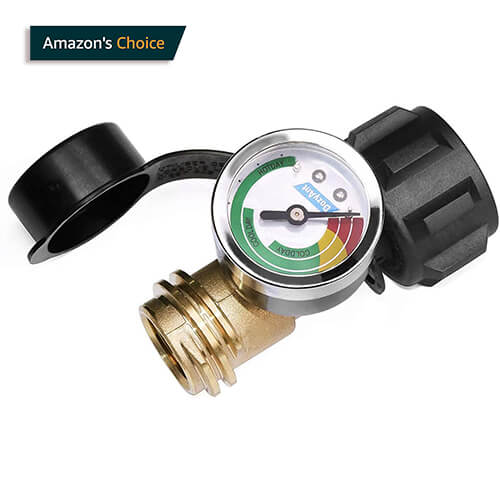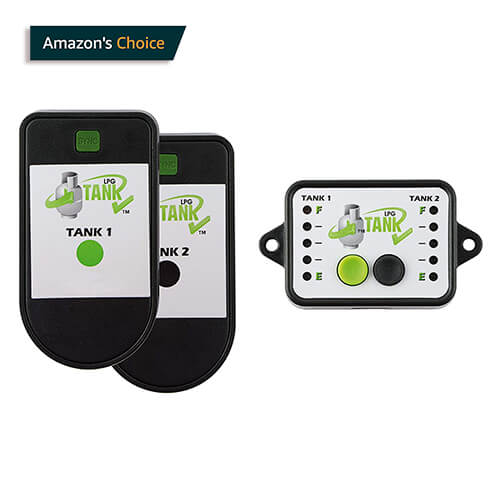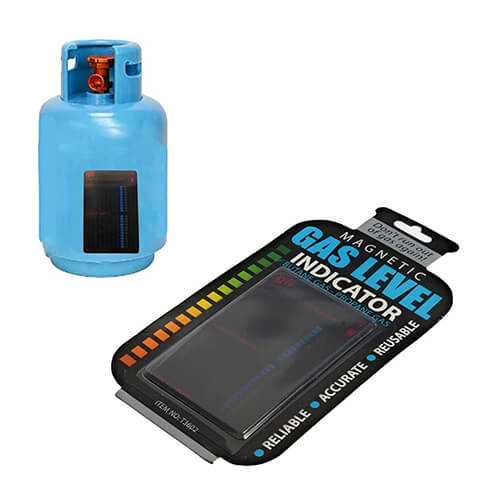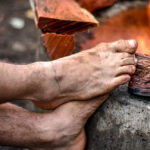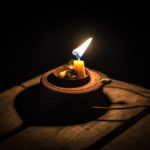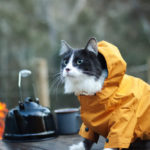Imagine, finally arriving at the campervan grounds. Parking, setting up, then preparing a mouthwatering grill, followed by a hot shower as a reward. Then you turn on your gas tanks, and all you hear is a faint hiss. It’s empty, the Propane tank, you forgot to check.
I’ve recently had this traumatic experience, and trust me; it’s utterly devastating.
Luckily, I was fortunate enough to have a neighbor that provided hot water access. Later that night as we gathered around the campfire, I sat in disbelief as to how I could assume there would be enough gas.
I remember buying a brand new tank a few months ago, only using it a few times for cooking.
I turned to my camping neighbor and asked a simple question, and that was, “How Long Does a Propane Tank Last?” His answer was, “It Depends.”
The next hour was spent me asking many questions on gas storage, handling, and bottle expiry. By going down this rabbit hole, I discovered factors such as size, usage, and temperature affects how long propane tanks can last.
This article will cover the factors that determine how long a gas tank would last on your campervan trip. We also explore Propane properties and the universal units of measurements for gas.
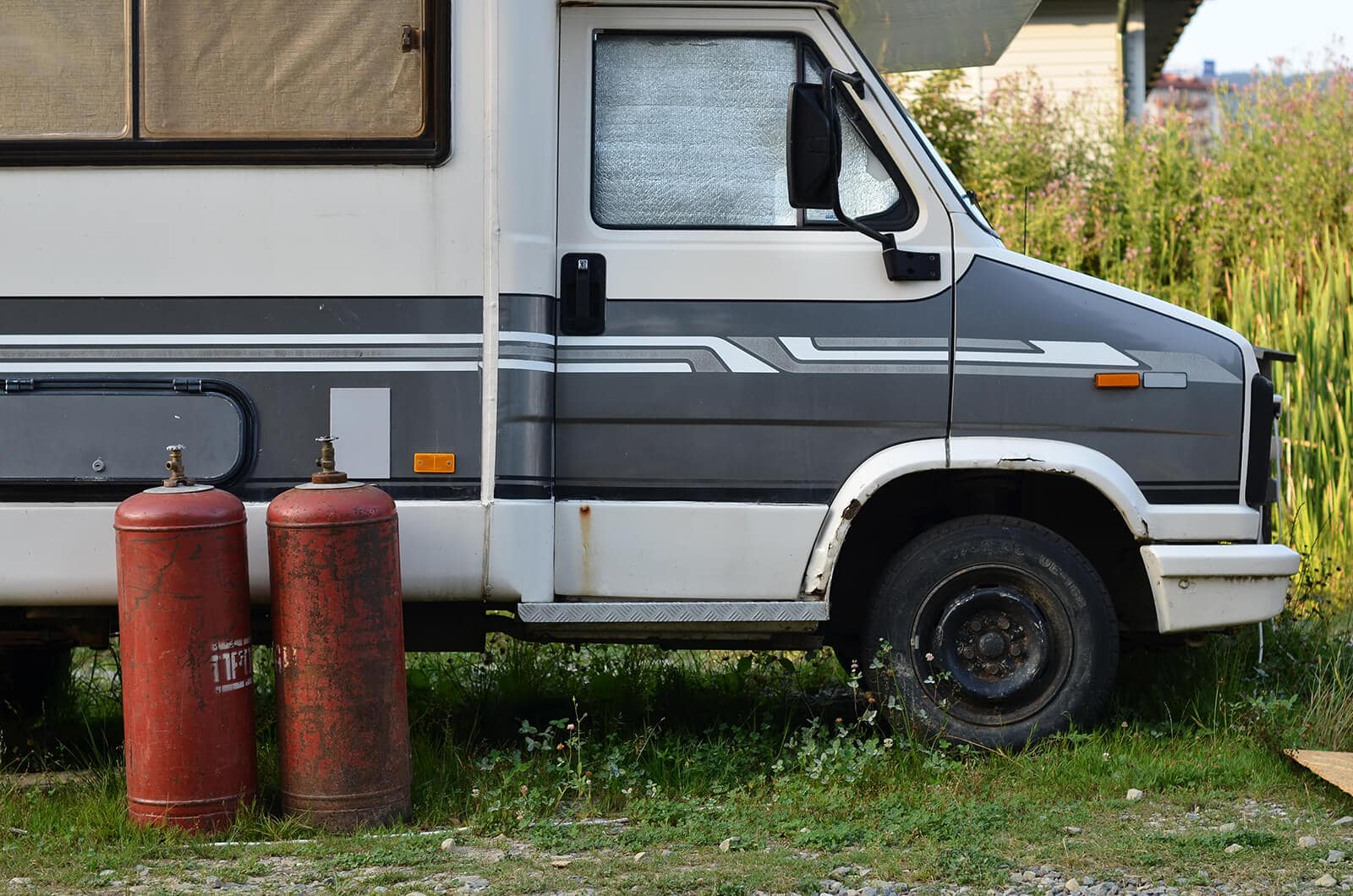
How Long Does a Propane Tank Last?
As well as common uses of gas on a camping trip. We will then explore what activities you’re likely to use Propane on when camping.
Finally, I’ll provide an easy method for you to determine how much gas that is currently left in your bottle.
You may also find some safety tips and hacks on storing Propane tanks to get maximum shelf life. So without further ado, let’s get into it.
How long will a propane tank last?
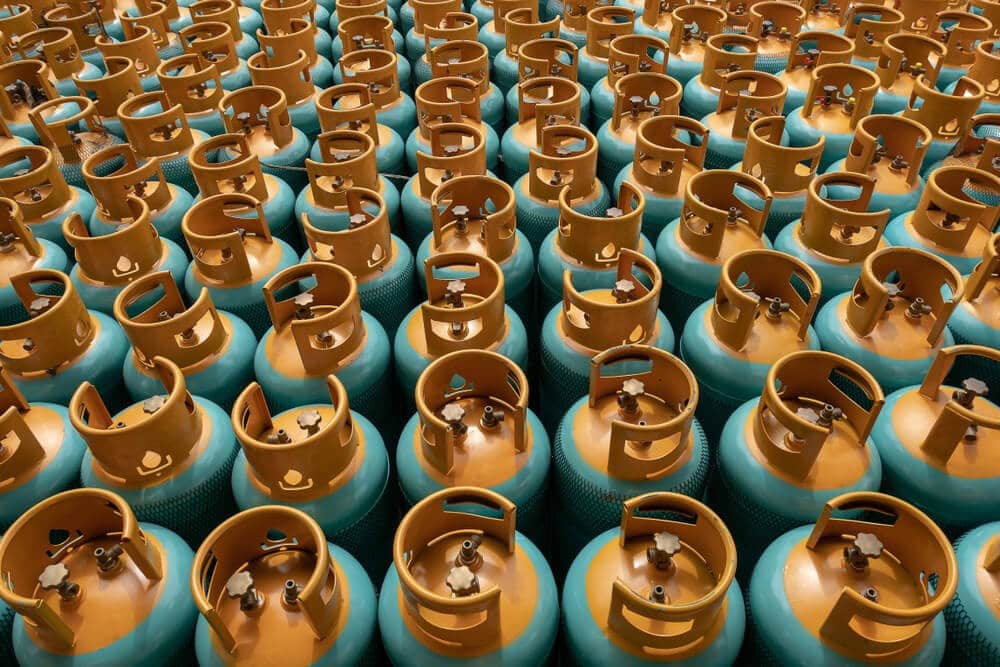
400 to 560 gram or 14 to 20-ounce propane tanks should last with regular grill use, approximately 16 hours. This is calculated and tested on a 2-4 four burner grill. With larger grills 6 to 8 burners, you can expect a lot less usage from 10 to 14 hours.
More experienced grill masters will be able to sense when tanks are running low. You can also use the easy method below to determine gas levels.
Gas loss can occur from accidental overuse and expansion from temperature changes. Due to this, many campers allocate a second tank in case of an emergency.
Common uses of gas in campervans.
Below are common Campervan activities that can deplete a Propane tanks life:
Cooking stove, barbecue—A popular activity for using Propane. Cooking and grilling on a medium barbeque can deplete a 20-pound tank in roughly 10 hours.
Propane cool box/fridge—A small to medium recreational vehicle fridge that runs on Propane. It is known to use approximately 1-2 pounds of Propane per day.
Propane camping shower—For an average family on a conventional campervan heating system. It will require about 4 to six pounds of Propane per day.
Propane camping heater—For the average campervan gas furnace. It will burn approximately 4 pounds per day with regular use.
Propane grills.
I often get asked how long propane tanks last on a grill. Again it really depends on your burners. To give yourself the best chance at saving gas when cooking I suggest purchasing a grill with an electric ignition system.
If your grill has this feature, then it saves leaving the pilot light on all the time, thus saving gas.
Look at the flames on your propane device. They should be burning with a blue flame. Blue is a hotter flame. If your grill is burning with a yellow flame, it means that there are clogged burners or air inlets.
Also, keep the top reflectors clean, clean reflectors will reflect the heat efficiently and stronger which is also known to save much more energy.
Where does propane come from.
Propane is a kind of LPG (Liquefied Petroleum Gas). Although Propane is a gas, it can be made liquid and then stored in a propane gas bottle. It has a low boiling point of -42C. As pressure is released on leaving the gas bottle, it turns to gas.
Propane is made as a by-product of natural gas production. It is sometimes also made from crude oil processing.
Properties of propane.
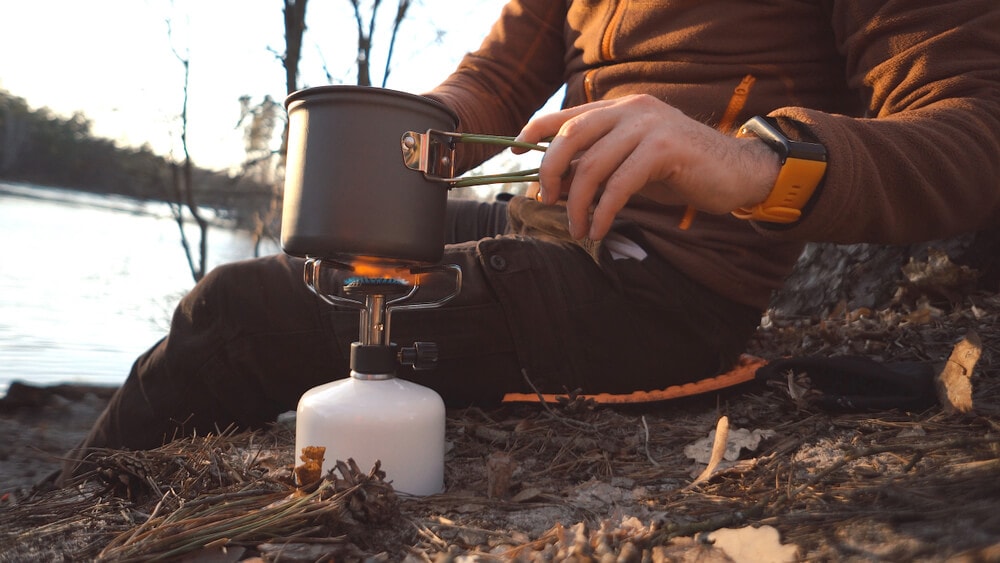
Propane is virtually odorless, so manufacturers are mandated to mix ingredients into the gas (an odourant) so it can be smelt if there is a gas escape.
If it does escape, it poses no risk to soil, groundwater, or surface water.
Propane tanks have a high octane fuel with a rating of 110 octanes. Thanks to its high octane rating, it is very efficient and produces far more energy than other types of fuel. It is also a cleaner fuel.
Common sizes of propane cylinders.
- 20 lb tank: 18” tall and 12” in diameter. Holds 5 gallons of propane
- 33 lb tank: 2 feet tall and 1 foot in diameter. Holds 8 gallons of propane
- 100 lb tank: 4 feet tall and 18” diameter
- 420 lb tank: 4 feet tall by 3 feet diameter
- 500-gallon tank: 5 feet tall by 10 feet long
The 20lbs propane tank.
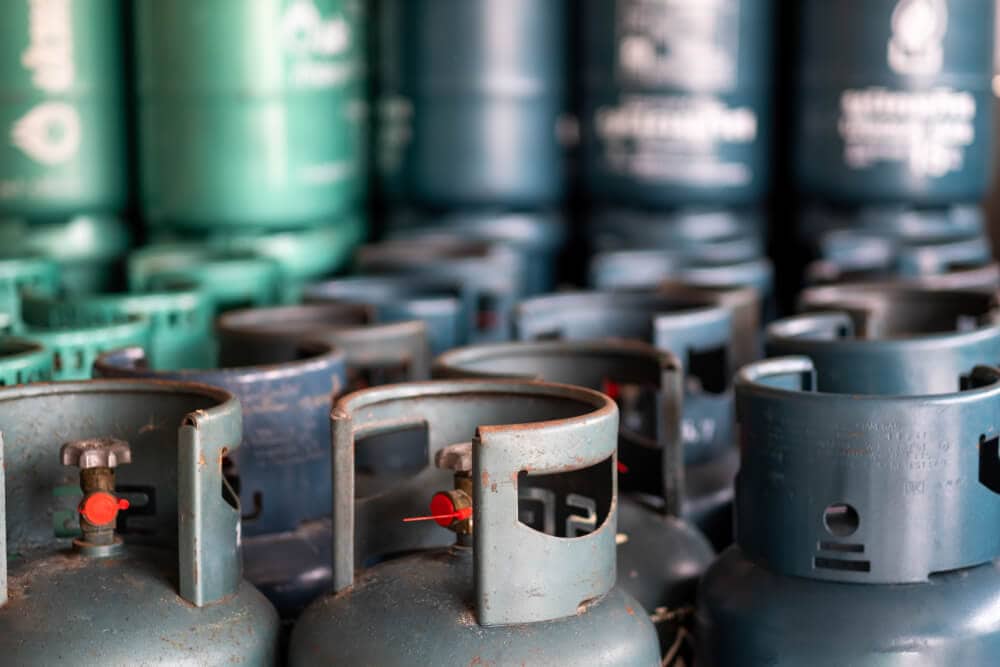
A twenty-pound tank is designed to take 20 pounds of Propane. However, the actual amount will depend on some other factors.
First of all, the temperature of large stationary propane tanks when the tank was filled. If it is pretty cold, then you will get more gas, and if it is hot, you will get less gas. You can get as much as 2 pounds less than you expect.
On every gas cylinder, you will see the Tare Weight (TW). This is the weight of an empty cylinder.
So a full 20lb cylinder will be 20lbs Gas + 17lbs Cylinder = 37 lbs total. If your cylinder is only weighing 30 lbs, for example, it means you only have 13lbs of gas left.
Working in gallons or litres.
If you go to a place where they will refill your 20 lb cylinder, you should see 4.7 Gallons for a full bottle (17.79 liters). Some stores will charge you for a full cylinder, but look at the gauge, and you will see they only put in 3,6 gallons, not 4.7 gallons.
How to determine how much gas is left and a propane tanks life.
Whether you have large stationary propane tanks or small residential propane tanks. The easiest way to find out how long do propane tanks last and how much gas you have left in your Propane bottle is simple. Just follow these step by step instructions:
- Fill up a small jug with warm water
- Pour it down the side of the gas bottle.
- Wait for just 5 seconds.
- Then using your hands, slide them down the side of the bottle.
- When you detect a change in temperature (it gets colder), that’s where the gas level is.
Note that when you purchase a gas bottle, it will only actually be 80% full. They do this to allow for expansion on a hot day. You should still get the correct amount of gas, its just extra space they allow.
Proper propane cylinder storage and good practice.
You should always store propane tanks in a clean, dry location outside. They should never be stored indoors. Do not leave them in puddles to avoid rust. They should not be stored close to other flammable products.
If you have a tank that you keep taking to be refilled, be aware that there is a date (month and year) on the cylinder, which tells you when it needs to be recertified.
You have twelve years from when the tank was initially made. When they are recertified, they put another date on the collar, but this time it will just be six years. After six years, they have to be recertified again.
With the hassle of getting the cylinder recertified and the charges for doing it, you may think it better to go to a store that offers newly filled tanks in exchange for the old ones.
More often than not, stores will let you can manually select the bottles you need.
This raises the possibility of ending up with a much newer tank.
Camping gas safety.
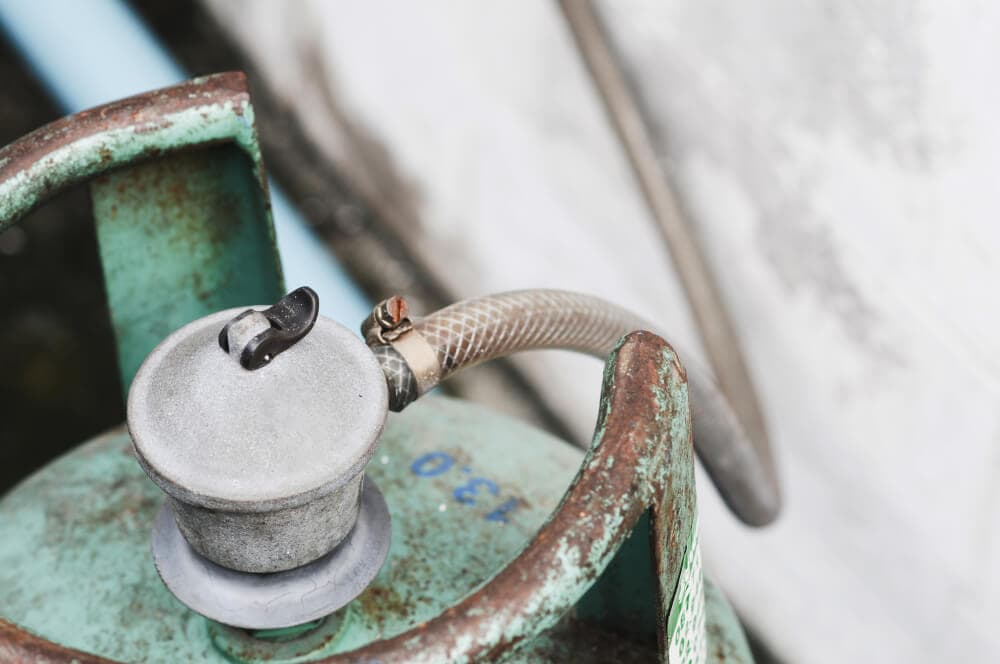
Never take propane tanks (or any other natural gas) powered stove or heater into your tent. It is possible that the appliance could be faulty and not be burning all the gas, resulting in fumes that can displace air in your lungs.
The same applies to Propane lamps.
You may not be able to smell carbon monoxide. If you or a partner have been using a Gas appliance inside make sure to be aware of early stages of carbon monoxide poisoning.
Symptoms include flu-like feelings, tiredness, and confusion. An easy fix is to remove the source, but if problems persist make sure to see the nearest doctor as soon as possible.
Final words.
In this article, I have given you several tips on how to get better value from your Propane cylinders. I have also explained a little about the technical side of using Propane tanks safely.
You should be an expert in no time on determining How long does a propane tank last. By learning this basic yet essential skill, you should be proactive and (hopefully) never run out of natural gas again.
Curious to know How Hot Does a Campfire Get? Click here to read our article.

